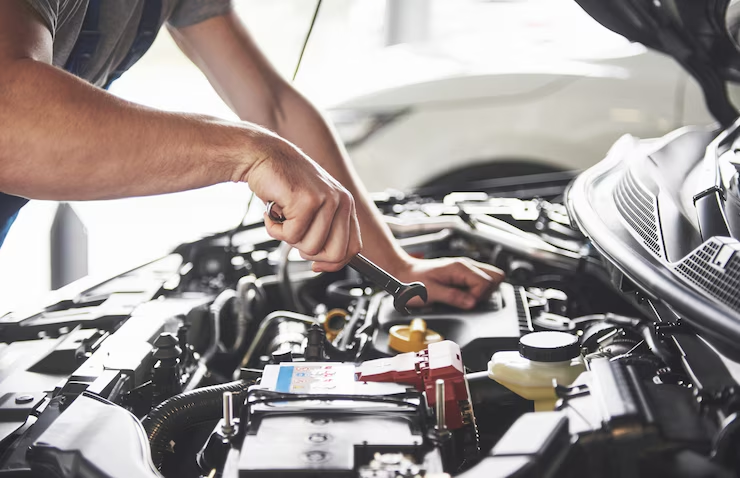When it comes to owning a vehicle, maintenance and repair are inevitable aspects of ensuring its longevity and performance. Auto repair encompasses a wide range of services, from routine maintenance tasks like oil changes and tire rotations to more complex engine repairs and diagnostics. Understanding the basics of auto repair can help you make informed decisions about your vehicle’s care and empower you to communicate effectively with mechanics. In this comprehensive guide, we’ll explore the key components of auto repair, common issues faced by vehicle owners, and tips for finding a reliable and trustworthy mechanic.
Understanding Auto Repair Services
Auto repair services can be broadly categorized into preventive maintenance and corrective maintenance. Preventive maintenance involves routine tasks designed to keep your vehicle in optimal condition and prevent potential issues from arising. This includes services like oil changes, tire rotations, brake inspections, and fluid checks. Corrective maintenance, on the other hand, involves addressing specific problems or malfunctions in your vehicle, such as engine repairs, transmission issues, or electrical system diagnostics.
Common Auto Repair Issues
Vehicle owners may encounter a variety of common issues that require professional auto repair services. Some of the most frequent problems include:
- Check Engine Light: The check engine light can indicate a range of issues, from minor sensor malfunctions to serious engine problems. It’s important to have the underlying cause diagnosed by a qualified mechanic.
- Brake System Troubles: Brake issues can compromise your safety on the road. Squeaking, grinding, or soft brakes may indicate worn brake pads, a leak in the brake system, or other issues that require immediate attention.
- Electrical System Malfunctions: Problems with the electrical system can lead to issues like a dead battery, malfunctioning lights, or faulty power windows. A skilled technician can diagnose and repair these complex systems.
- Transmission Problems: Transmission issues can manifest as slipping gears, rough shifting, or strange noises. Addressing transmission problems promptly can prevent costly repairs down the line.
- Suspension and Steering Concerns: Worn shocks, struts, or steering components can affect your vehicle’s handling and ride comfort. Regular inspections can help identify and address these issues.
Finding a Reliable Mechanic
Choosing a trustworthy mechanic is crucial to ensuring quality auto repair services and avoiding unnecessary costs or subpar workmanship. Here are some tips for finding a reliable mechanic:
- Ask for Recommendations: Seek referrals from friends, family, or online reviews to find reputable auto repair shops with a track record of customer satisfaction.
- Check Certifications and Experience: Ensure that the mechanics at the repair shop are certified by organizations like the National Institute for Automotive Service Excellence (ASE) and have experience working on your vehicle make and model.
- Get Written Estimates: Before agreeing to any repairs, ask for written estimates detailing the cost of parts and labor. A transparent and honest mechanic will be upfront about pricing.
- Inquire About Warranties: A reputable auto repair shop should offer warranties on parts and labor to guarantee the quality of their work.
- Communicate Clearly: Describe your vehicle’s symptoms accurately and provide any pertinent information to help the mechanic diagnose the issue effectively.
DIY Auto Repair Tips
While some auto repair tasks require specialized knowledge and equipment, there are several maintenance tasks that vehicle owners can perform themselves to save time and money. DIY auto repair tips include:
- Regularly Checking Fluid Levels: Monitor levels of oil, coolant, brake fluid, and windshield washer fluid to ensure your vehicle operates smoothly.
- Replacing Air Filters: Dirty air filters can reduce fuel efficiency and engine performance. Replacing them regularly can improve your vehicle’s overall efficiency.
- Inspecting Tires: Check tire pressure, tread depth, and overall condition to maintain optimal traction and safety on the road.
- Changing Wiper Blades: Worn wiper blades can impair visibility during inclement weather. Replace them periodically to ensure clear visibility.
Conclusion
Auto repair is an essential aspect of vehicle ownership that requires proactive maintenance and timely intervention to keep your vehicle running smoothly. By understanding the basics of auto repair, common issues faced by vehicle owners, and tips for finding a reliable mechanic, you can navigate the world of auto maintenance with confidence. Whether you opt for professional services or tackle DIY repairs, prioritizing the care and maintenance of your vehicle will ensure safe and enjoyable driving experiences for years to come.


